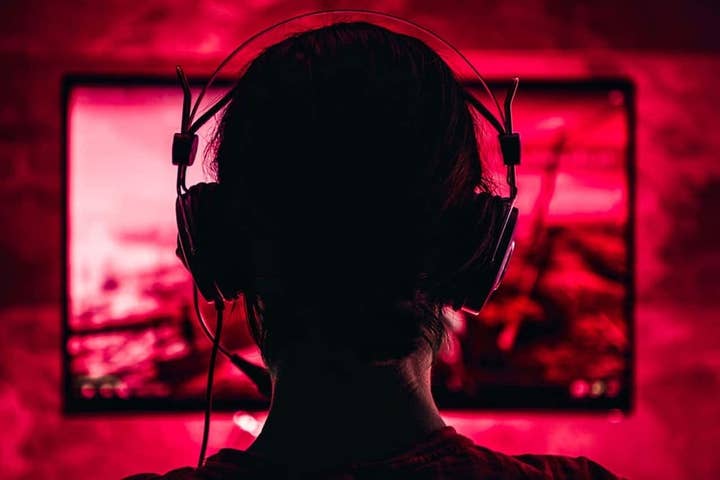A lawyer's perspective on the industry's abuse problem
Toxic family notions, favoritism and lack of regulation all lead to abuse, says legal expert Siobhán Crawford
It has been just over four months since the industry was rocked by a second wave of abuse allegations leveled at both individuals and company-wide cultures. Just like the outcry a year prior, the anger and frustration of abuse survivors boiled over and brought the industry face-to-face once more with its own demons.
If you spent any amount of time in industry social media circles during that painful week, you will remember the countless stories of individuals coming forward. Not just to shame -- and sometimes name -- their abusers, but also the enabling frameworks which allowed them to remain unaccountable.
In response to the allegations, some companies began publicly cleaning house -- such as Ubisoft, which is now facing a lawsuit over abusive and bullying behaviour reportedly rampant throughout the company of 18,000 people.
"There often isn't a framework in place to know what this sort of harassment looks like"
Siobhán Crawford
But for all of the public anger, the solemn statements of condemnation, and questionable apologies, the problem hasn't just disappeared. However, there are viable steps the industry can take, as Siobhán Crawford, an abuse specialist lawyer with Bolt Burdon Kemp suggests.
"There often isn't a framework in place to know what this sort of harassment looks like," she tells us. "And I think what would be a good start is to try and put some sort of framework in place. But, in my view, I feel that sometimes these allegations are brushed under the carpet because it's not happening to them. So they say you should grow 'thicker skin', or it's just workplace 'banter'."
Take a top-down approach
Crawford has worked on various abuse cases, including against the Catholic Church, and has seen how systemic abuse remains unchecked within such institutions. Crawford was struck by the "ingrained misogyny" of gaming culture, and by extension the industry, saying it needs a top-down approach to tackle effectively.
"The gaming industry and the businesses within it say: 'Yes we'll change, yes we'll do something about that.' But they don't actually pull up and do the work. They just pay lip service to what they think people want to hear, and then allow things to continue."

These performative responses often cause additional harm to the survivors. Crawford recalls times she has heard clients say they felt abused all over again after their claim was ignored, mitigated, or otherwise disregarded.
There are a few reasons why companies may not act on abuse allegations, or fail to act in a meaningful way: favouritism, potential loss of institutional knowledge, and fear of damaging the company's reputation with a public scandal chief among them.
Failing to act is perhaps the worst thing a company can do in this situation, as it opens considerable liability issues around negligence, especially regarding criminal behaviour. In order to protect both the company and its staff, taking direct and decisive action is an important step, says Crawford.
"By sacking the people, no matter who they are, who are to blame for the abuse -- be it harassment, emotional or sexual [abuse] -- and also reporting those people to the police... I think that would send a message that it's not to be tolerated."
Look beyond the workplace "family"
Not only companies should also foster a culture of honesty and openness, Crawford adds -- there needs to be people in place to investigate complaints. And if that's not possible, or there is a conflict of interest, an external consultant should be brought in.
A significant hurdle with investigating abuse allegations is the close working relationships that typically develop among staff, especially in smaller companies. Though these relations are perfectly innocent, investigating even a casual acquaintance can create problems around unconscious bias and preconceptions, which cannot be easily disregarded. This issue is only exacerbated in companies which encourage a "we're a family" attitude.
"It's a really fine line, and often a hard line," says Crawford. "And this is the problem... You spend most of your working life at work, so you have to get along with those people. But do not get it twisted that they are your family... What that indicates is that it gives a false sense of security to people, where they think that people who they work with and work for actually do care about them.
"You spend most of your working life at work... but do not get it twisted that they are your family"
Siobhán Crawford
"You can have a culture of closeness,and a culture of honesty -- and I actually think a culture of honesty is really, really good -- but I think a culture of [true] family in the workplace just simply doesn't exist."
Every game company, especially in light of the recent abuse allegations, should be taking this matter seriously. Along with an industry-wide framework for identifying and responding to abuse, Crawford also suggests an industry body responsible for handling allegations and investigations.
"There need to be checks and balances inside the company to make sure those who are investigating any complaints of behavior are truly removed from all of the individuals," says Crawford. "And then I do think... an overarching regulator would be really helpful to those who have been abused within the industry, because it is somewhere they can go and complain, and know that it will be properly investigated."
This would benefit freelancers, too, who often have little to no recourse after being subjected to abuse. It is all too easy for an abuser to say "that person is difficult to work with" when what they actually mean is "that person rejected my advances."
"It's really unfair on freelancers, because they try to string together enough work to live," says Crawford. "It's so sad that it all comes down to reputation... That's what it's about when you're a freelancer; it's not just about 'can you do the job' sometimes, it's also about 'you scratch my back, I scratch yours.' We need protection for freelancers as well. Because one job can make or break them within any creative industry."
Guidelines for investigating abuse
The outpouring of anger we saw back in June may have faded in recent months, but the pain is still there, and more abusers will be outed in time. Speaking with GamesIndustry.biz, Ross Meadows, partner and head of the HR and employment team at Oury Clark Solicitors, lays out what an investigation into abuse allegations should look like.
Firstly, the exact allegations need to be identified, along with who in the organisation should carry out the investigation. A realistic timescale must then be established, the complainant should be regularly updated, and receive a clear explanation if the timescale is not met.
"Those accused need to be dealt with in a sensitive way and no presumption of guilt should be made"
Ross Meadows
"The investigator will need to identify the facts they need to establish, and also consider the appropriate lines of questioning depending on the particular sensitivities of the case," says Meadows.
The process should also remain anonymous, and the investigator should offer both parties the right to be accompanied by a work colleague or trade union representative. If the complainant is particularly vulnerable, they should also be allowed a friend to attend meetings and offer emotional support.
"While support needs to be provided to the complainant, being accused of sexual harassment can also have significant impact on the alleged perpetrator," Meadows adds. "Therefore, those accused need to be dealt with in a sensitive way and no presumption of guilt should be made. Consistency is the key here."
Suspending the accused is also a viable option, but "must be justified and not a knee-jerk reaction."
"If there no finding of sexual harassment or assault, the matter will not end there," he continues. "The way the matter is resolved will be in fact sensitive, and options include counselling, mediation, or trying to ensure the complainant and the accused are separated at work -- this is easier in large organisations."
Obviously, investigations require a great deal of care to conduct, which provides even greater reason to invest in human resources.
"HR now is very different from HR 20 years ago," says Crawford. "And so a lot of the time, you have to have a qualification. You can't just walk in and say: 'Hey, I'm a people person. Give me a job'... I think that ongoing training, that continuing professional development of a HR department, is key in ensuring that those who make complaints about anything in the firm, not even just harassment, are properly dealt with."
Perhaps most importantly in this discussion, though, is that companies hold themselves accountable; for the abuse that is allowed to perpetuate across the industry, for the ruined careers, for all the pain and trauma.
"The companies and the platforms need to start taking responsibility for what goes on on their platforms," says Crawford. "Because if they don't start taking responsibility... for what's happening in house and on their platforms, how will anything ever change?"









